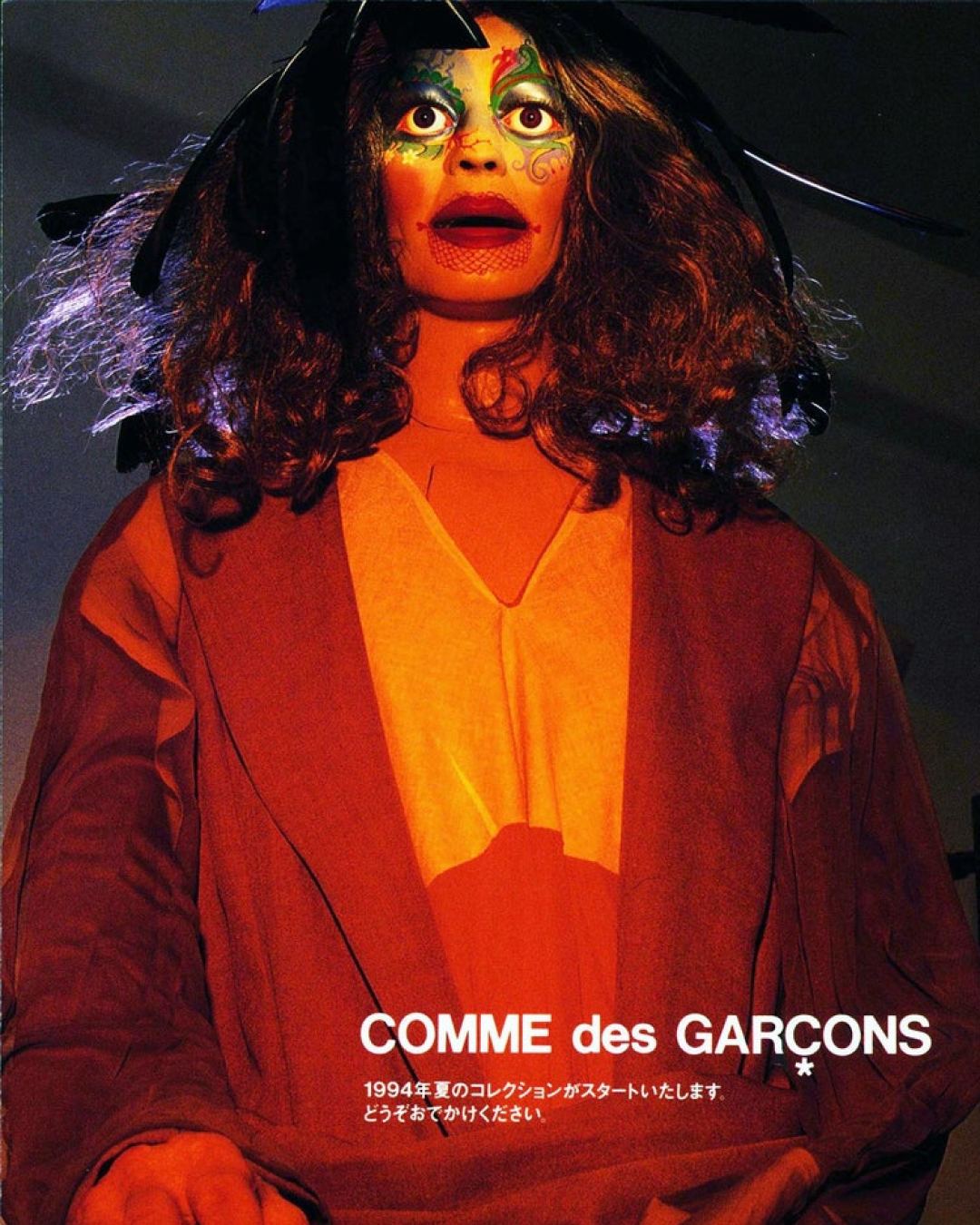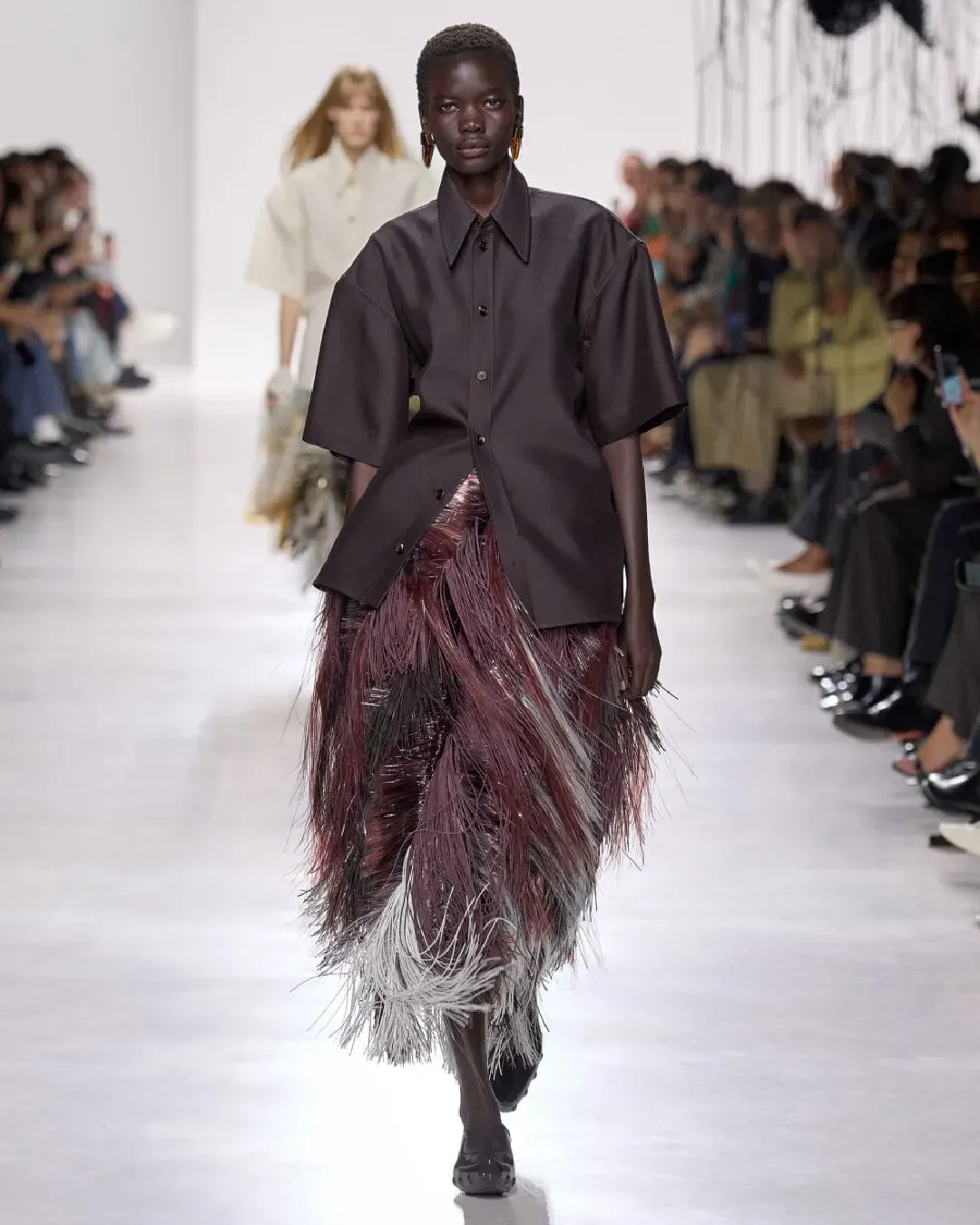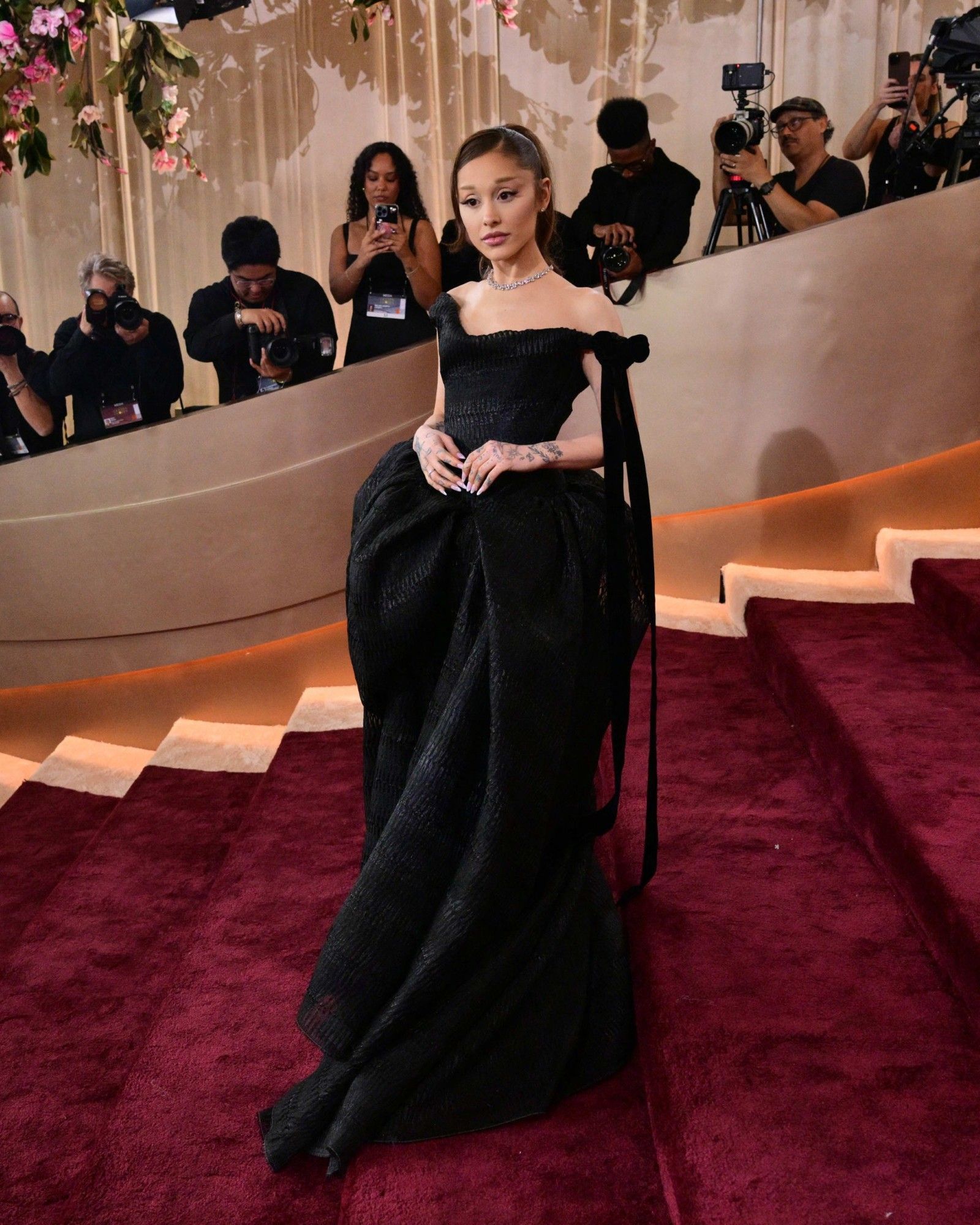
Jelly shoes are proof that counter-trends still exist A strange ode to PVC rubber
Just a few steps from the Darsena, Milan, a passerby walks down the street wearing an outfit that perfectly sums up the state of women's fashion in 2025. She wears a very simple blue suit, oversized but not excessively loose, small golden earrings, and on her feet, a pair of extravagant orange PVC mesh ballet flats. Whether they were purchased for hundreds of dollars at one of the mysterious stores of The Row or quickly grabbed at a local tobacconist with a 20-euro bill, we do not know. While everything about her outfit tells the story of a woman who needs to dress functionally yet elegantly, her jelly shoes express her personality. They do not look comfortable - since they are transparent, they reveal a foot that twists, forced to move unnaturally with each step - yet the reason they attract attention is not the amusing way they make her walk. There is another explanation, deeper than their mere aesthetics, that makes jelly shoes an anachronistic cultural phenomenon. With a growth of over 100% in Google searches over the past year, PVC footwear that mimics the "crab shoes" worn by children at the beach is experiencing unprecedented success in luxury fashion. At a time when the fashion industry envisions women as muses of practicality, hyper-chic, timelessly charming, lovers of suede, and everything vintage, those who choose to wear a pair of uncomfortable and cheap jelly shoes (even though, as we will see, they are not always inexpensive) seem to know something that others do not.
Are they chic? Are they grunge? We are not sure. Over the past two decades, everyone has worn them, from punk-chic fans of Vivienne Westwood and Melissa in the '90s to Phoebe Philo when she designed them for Celine in 2014. It must be said that they have undergone a rapid and strange transformation: in the '80s, PVC sandals were primarily worn by children to protect their feet from rocks, while just a few years later they were already on the red carpet, worn by young Kirsten Dunst at the MTV Movie Awards 1995. A few years later, they appeared on the big screen in the stoner movie The Big Lebowski (1998), where the protagonist paired them with pajamas and unlikely beige cardigans. After a trend revival in the early 2010s thanks to Tumblr and American Apparel, this year we found them on the feet of Taylor Swift on Instagram for the release of 1989 (Taylor's Version), as well as on stars like Jennifer Lawrence, Blake Lively, and Lisa, photographed on the streets of New York. The most interesting feature of jelly shoes is that they do not belong to any specific fashion trend: they cannot be defined as Brat because they are not suitable for clubbing, nor can they be called Demure because, in an exclusive members club in the city center, among kitten heels and loafers, they would undoubtedly stand out.
Is it fair to call the choice to wear a pair of jelly shoes a form of resistance in a world of loafers and slim sneakers? Is it possible that such a small, strange - and, if we may say, even anti-sustainable - shoe is capable of conveying so much? Judging by the noise they are making these days, on the streets of metropolises as well as in leading fashion media, it seems so. Even luxury brands have been captivated: The Row produced a pair in red mesh for Pre-Fall 2024, Chloé made them with a kitten heel and platform for SS25, and Bottega Veneta reinvented the platform crab shoes from years ago for SS25 - all selling for 900, 490, and 690 euros, respectively. Although the trend can be traced back to the Alaïa mesh ballet flats, released in May 2022 and becoming the most popular and searched item in October 2024 according to Lyst, the answer lies precisely in the '80s and '90s when jelly shoes were worn by teenage Kirsten Dunst and The Big Lebowski: the trend made no sense, and that was the point. Whether they cost hundreds of dollars or just over twenty euros, in an era where every clothing item has the potential to become a viral trend, their impracticality, unnatural color, and childish aesthetic make jelly shoes a countertrend. Perhaps one of the few we have left.




























































